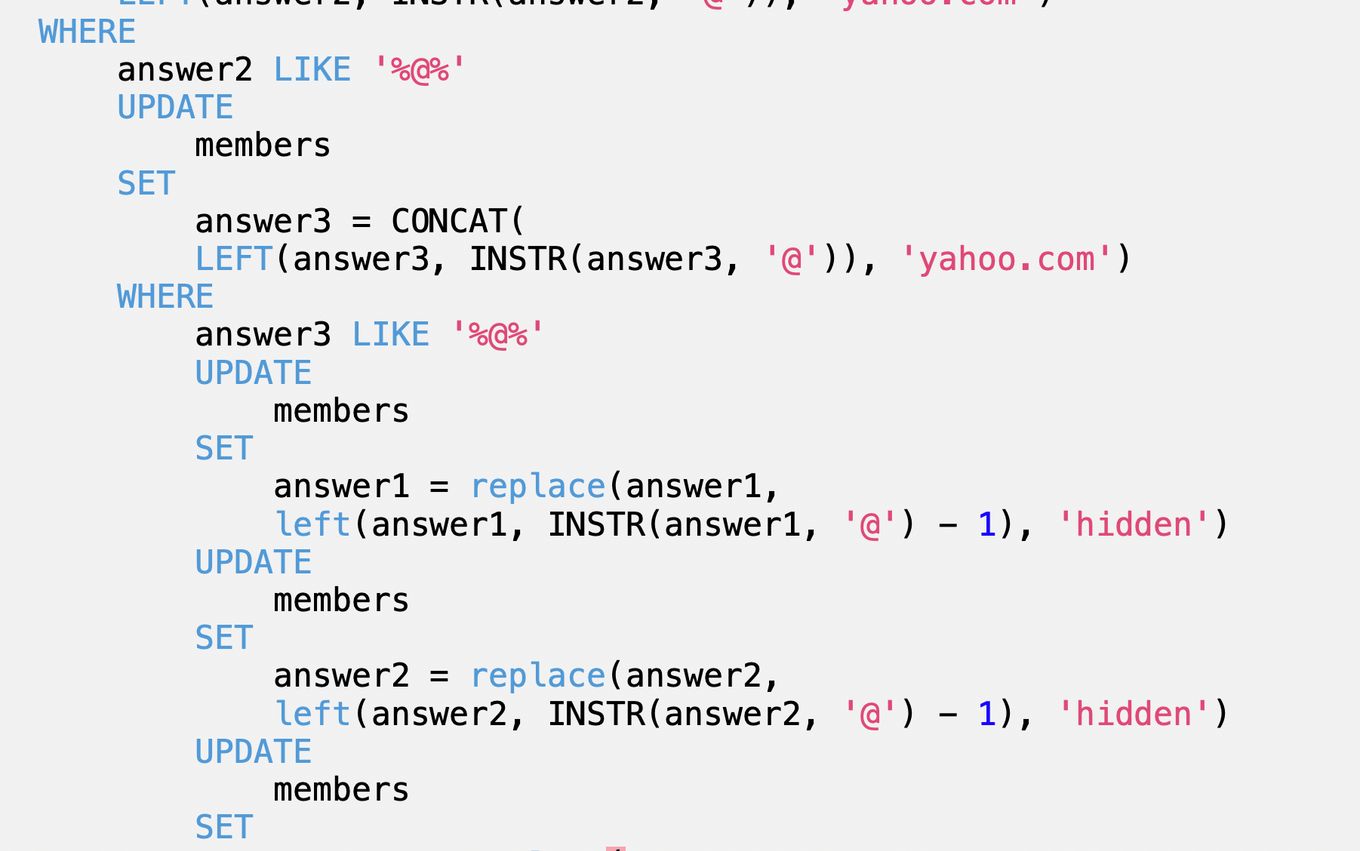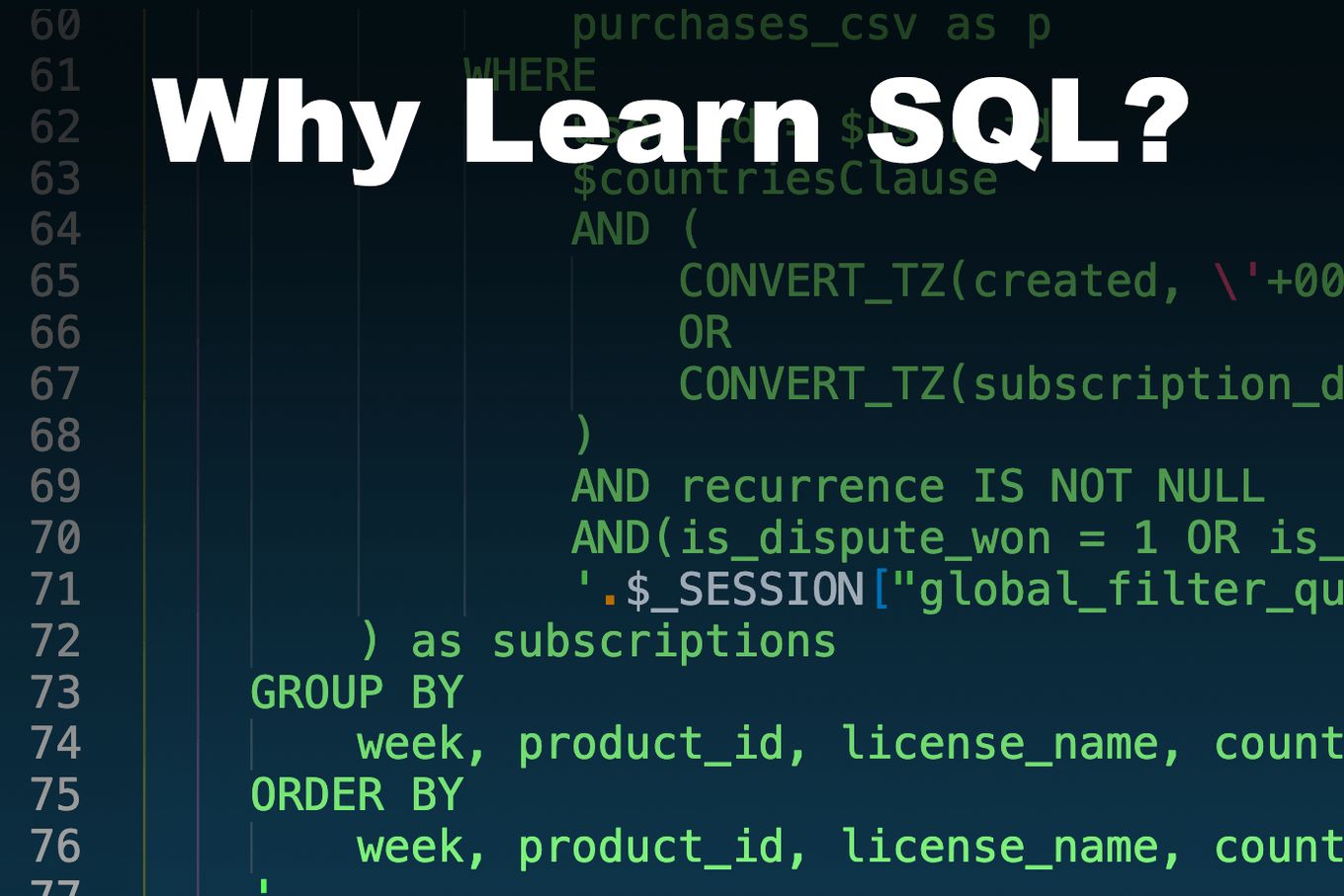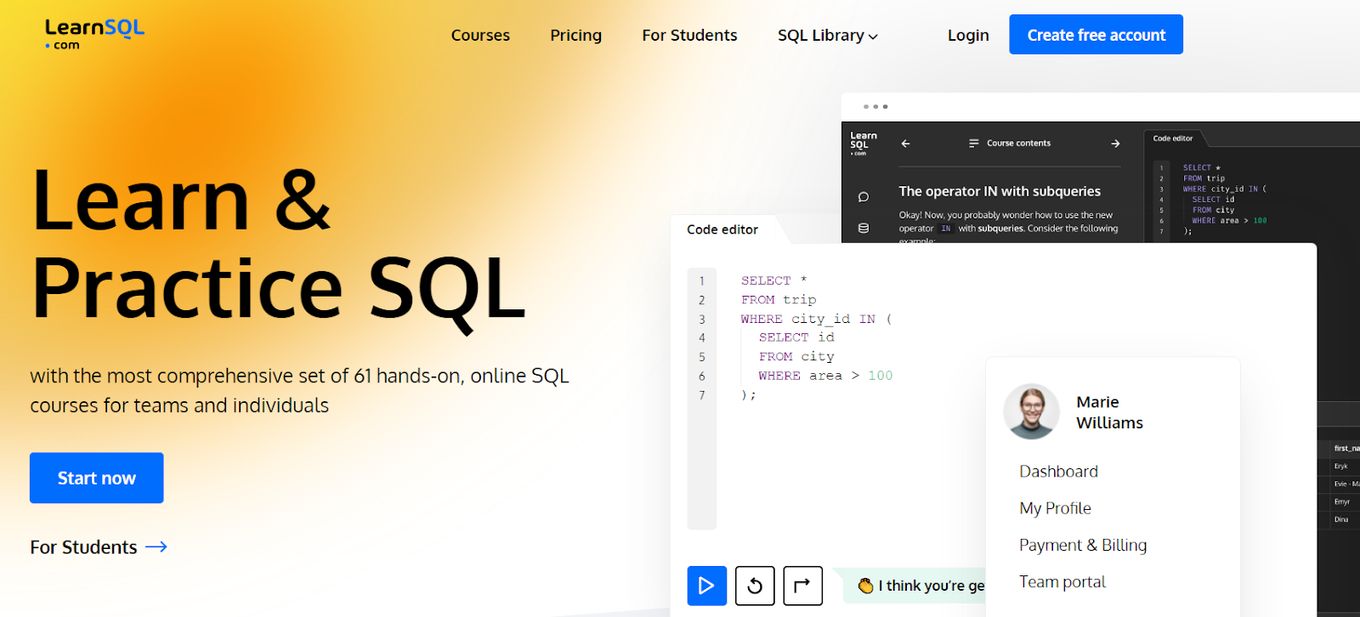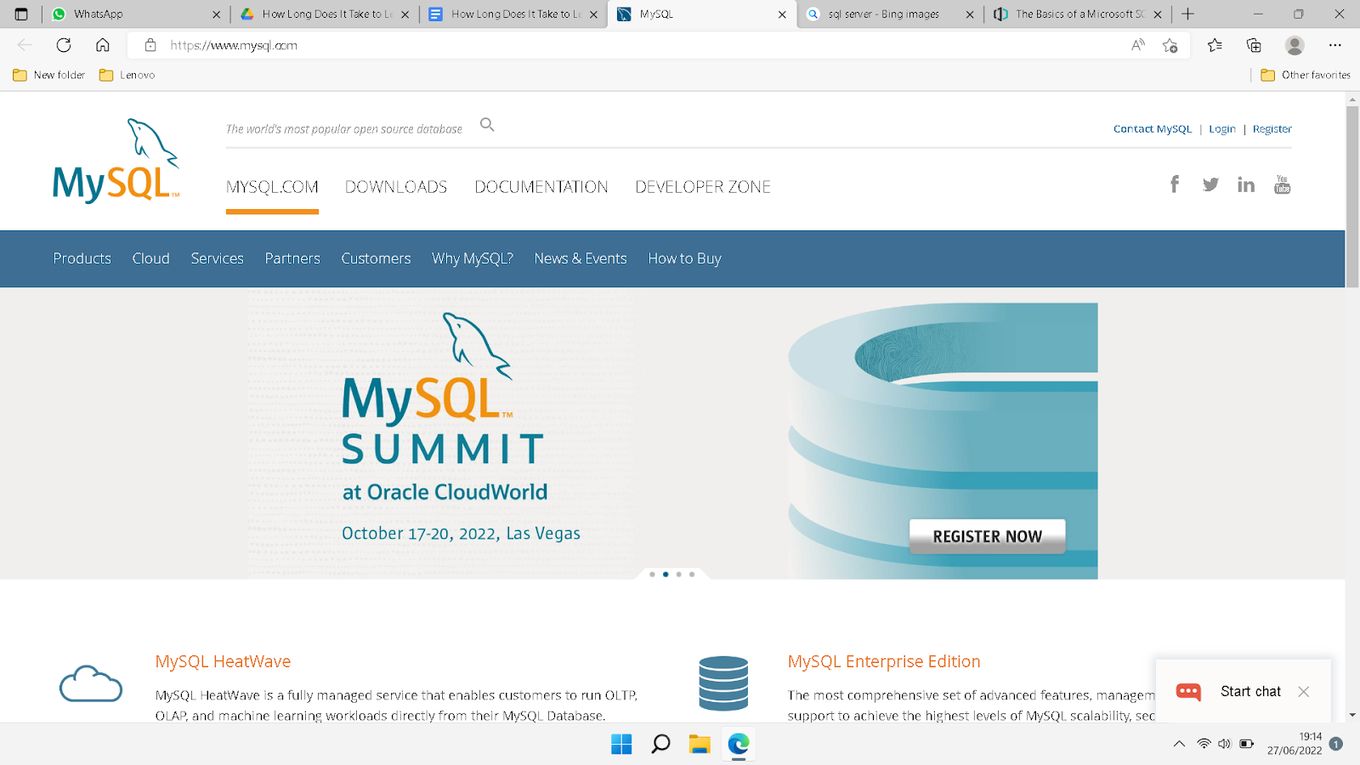Are you looking to expand your skills? Or do you simply just want to increase the chances to get a higher salary?
If you want to challenge yourself and dive into the world of database management, then SQL is the perfect place to start.
You’re probably asking yourself: how long does it take to learn SQL language? Is it hard to learn it? Don’t worry: it’s a pretty straightforward technology to learn. We’ll get into detail right now.
In this guide, we are going to discuss everything it takes to learn this powerful and widely usable language.

What is SQL?
SQL (or Structured Query Language) is the most popular language for extracting, updating, and managing data from relational databases. Oracle, MySQL, Microsoft SQL, and PostgreSQL are among the most popular relational databases nowadays.
These are the standard SQL commands:
- SELECT
- INSERT
- UPDATE
- DELETE
- CREATE
- DROP
These commands from the basics of the language allow you to perform almost any of the tasks you can perform with a database.
SQL is used in a wide range of sectors to help software developers, database developers, database administrators, and others to retrieve, update or insert new data into relational databases.
It’s a high-level domain language that focuses on a very specific task (manage databases) and thanks to that, it’s optimized to perform these operations in an extremely performant way.
Is It Hard To Learn SQL?
Certainly not. Learning SQL is not difficult to learn for basic usage. It can get harder depending on how deep you want to know the language and what kind of tasks you will be performing with it.
SQL itself can be frightening to those of us without a technical background, but it doesn’t have to be.
Once you understand how the information gets stored in tables and how they relate between them, then it’s quite simple to perform basic queries using the standard SQL commands.
Why Should You Learn SQL?
SQL will open you the door to a world of possibilities. Almost every application needs to store and manage data. And being relational databases are one of the most popular storage systems, SQL is just the perfect language to learn to acquire a new valuable skill.

Even if you’re not a natural programmer, there are plenty of compelling reasons to overcome your concerns about SQL’s difficulties.
Data isn’t simply the future; it’s here and now. Data analytics are no longer the sole domain of large enterprises. Data is being used to drive business strategy by a significant number of firms, both large and small.
It has an impact on markets, governments, corporations, and even love! Upskilling in the data-related field is always a good idea. Because data is so important in so many industries and aspects of our life, more and more businesses are looking for SQL-savvy employees.
Even marketing departments, which have traditionally been more concerned with art than science, are now looking for SQL abilities. If you know SQL, you will have an advantage in many job interviews.
Aside from paid work, SQL skills are always useful to have, even if you don’t intend to leverage SQL in your career. SQL will make your synapses agile and keep you up to speed with the data world, whether you prefer organizing or analyzing databases, or you simply want to keep your brain fit by learning new things.
How Long Does it Take to Learn SQL for Beginners?
It takes about two to three weeks to Learn SQL. Learning SQL is fast. It does not take long to master the fundamental concepts of SQL. This, of course, is dependent on how much you want to learn the language and why you want to learn it.
To use SQL in real-world applications and make a career out of it, you’ll need to go beyond the basics. Fortunately, this can be accomplished on the job. How long it takes to become proficient is greatly dependent on how fast you learn normally.
How Can You Learn SQL Fast

So far, we’ve covered the fundamentals of SQL: why you should learn it and how long it takes to learn SQL. However, the question that comes next is: What is the best way to learn SQL? Let’s go over some of the first steps you should take to learn SQL fast.
1. Begin With The Basics
While you may have grand plans for how to use SQL, you must first start small and understand the fundamentals:
- What is a Database
- Relationship between tables
- Standard SQL commands
- Conditionals, sorting, grouping,
- Unions and subqueries
Fortunately, because SQL is so widely used, many resources are available to you. Your initial step should be to learn about SQL syntax, queries, and instructions.
Once you’re comfortable with those themes, you’ll be able to tackle more complicated applications.
2. Practice With a Real Project
The greatest way to practice SQL coding is to work on a real-world project. This allows you to work on topics that are of interest to you rather than those that are listed in an online SQL course or lesson.
After you’ve mastered the fundamentals, consider what you want to accomplish with SQL. For example, you may establish a database for your blog or investigate an intriguing dataset you found online.
The sky’s the limit when it comes to project ideas. Of course, you should begin slowly. Make an effort not to take on too many tasks at once. When you’re ready, you can expand your projects to include more searches and more advanced SQL commands.
3. Document Your Learning Process
It’s tempting to construct a complex SQL query, download the results, and call it a day. You’ll have the data you need once you’ve written a query.
This strategy omits one critical step in the development process: documentation. Documentation allows you to study and test your discoveries.
You’ll learn how to validate whether the result of a query or project was as intended. When you first start, your documentation might be as simple as taking notes during the development process.
Ask yourself, “Why did I construct this query with these statements?” as well as “Is there a more efficient way to complete this task?”
These questions will allow you to stretch your learning muscles while also keeping note of why you chose certain decisions. Writing documentation can aid in project reflection. You can browse the documentation after you’ve written a query.
This will help you understand why you tackled a situation the way you did. You’ll be in a good position to determine whether the outcome of your project is what you were looking for.
4. Write Down Reports
Report writing is a more involved method of documenting your work, but it is an essential component of working with SQL. Once you’ve created a query, you’ll have everything you need to write an interesting report on your findings.
Reports have several functions. Managers and data analysts prefer to work with reports after analyzing a dataset in a professional development setting.
This is because reports are prepared in such a way that anyone with the necessary knowledge may comprehend their contents. You don’t normally require SQL knowledge to read a report.
Businesses make judgments based on information from their engineers and data analysts. Not only that, but report writing might help you refine your thinking about a specific subject.
5. Share Your Work with Others
Documenting your efforts allows you to obtain input from others. When learning SQL, there are several ways to share your efforts.
If you use SQL at work, you can also ask for comments on your work from coworkers. Alternatively, you may compose a series of blog entries to hold yourself accountable while working on a project.
If you follow these steps, you will find that it doesn’t take you that long to learn SQL.
What is MySQL?
MySQL is an open-source database that aids SQL’s role in managing back-end data for web applications. SQL is used by companies like Facebook, Instagram, and WhatsApp for back-end data storage and processing solutions.

When an SQL query is written and run (or parsed), it is handled by what is called a query optimizer. The query is sent to the SQL server, where it is compiled in three basic stages: parsing, binding, and optimization. Parsing is the process of checking the syntax, whereas binding is concerned with checking the query semantics. Finally, optimization produces the query execution plan.
The third stage is to produce all possible permutations and combinations to determine the best effective query execution plan in an acceptable amount of time. The better the query, the shorter it takes. SQL has been around since the 1970s and has subsequently become a mainstream database system.
SQL will remain useful for many years to come. If you learn it, you should be able to apply your knowledge in the coming years. This skill will help keep you relevant in the job market for quite a while.
Is SQL Easier Than Python?
Yes. SQL is a much easier language to master than Python. The reason why is, when viewed as a language, SQL is much simpler than Python since the grammar is smaller and there are fewer concepts in SQL. SQL is merely a query language.
Hence, it is not a complex programming language. The fundamental objective of designing SQL was to make it simple for ordinary people to retrieve specific data from a database. Once you’ve mastered SQL, you’ll find it rather simple to deal with any relational database.
This is why SQL is commonly regarded as the initial step in the learning process because it is a necessary tool for retrieving useful information from relational databases. It is also simple to understand because it reads like English. Having a good understanding of this language prepares you for Python.
![13+ Best Database Software For Mac [Reviewed & Ranked] mac database software share](https://alvarotrigo.com/blog/wp-content/uploads/2023/08/mac-database-software-share-300x150.png)
![9+ Best Open Source Databases in 2024 [You Must Know] open source database share](https://alvarotrigo.com/blog/wp-content/uploads/2023/08/open-source-database-share-300x150.png)
![11 Must-Have Skills If You Want to Be a Web Developer [2024] web developer required skills share](https://alvarotrigo.com/blog/wp-content/uploads/2023/08/web-developer-required-skills-share-300x150.png)
![15 Best Portfolio Website Builders in 2024 [Reviewed & Ranked] portfolio website builders share](https://alvarotrigo.com/blog/wp-content/uploads/2023/08/portfolio-website-builders-share-300x150.png)

![How to Become A Web Designer in 2024 [With No Degree] become web designer share](https://alvarotrigo.com/blog/wp-content/uploads/2023/08/become-web-designer-share-300x150.png)